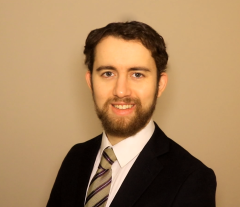Please tell us a little bit about yourself
I have always been fascinated by the complexities of the human body and mind. After completing my Bachelor's degree in Biomedical Science at Monash University, I went on to pursue a Master's degree in Clinical and Therapeutic Neuroscience at the University of Oxford. During my studies, I became increasingly interested in the process of aging and the potential for scientific research to help extend human lifespan and improve health outcomes. This interest led me to work for a biotechnology company in the US, and to my current role as a PhD candidate in aging and epigenetics at the University of New South Wales, under Dr Lindsay Wu.
I am passionate about using my scientific expertise and industry experience to make a meaningful impact on people's lives. I believe that the development of new aging biomarkers and longevity therapeutics has the potential to revolutionise the way we approach healthcare delivery and improve patient outcomes.
Outside of my studies, I co-founded Longevity Wiki, an open-access longevity science education platform and was previously Vice President of the Oxford Society of Ageing and Longevity, where I enjoy collaborating with others who share my passion for advancing research in this field.
During my free time, I like to stay active and enjoy cycling and triathlon as well as exploring the stunning national parks that Victoria has to offer through hiking and camping.
Please tell us about your research.
My research project focuses on developing aging clocks that can accurately track aging and health metrics across the lifespan. Biological aging and age-related diseases, such as cancer and Alzheimer's disease, are the leading cause of mortality and morbidity worldwide, and aging clocks are crucial for guiding clinical decision-making and accelerating longevity research.
However, the predictive power of existing aging clocks is currently limited. To bridge this gap, I am using bioinformatics and AI approaches to develop best-in-class aging clocks that are clinically validated and extend beyond the 353 CpG sites in one tissue to many thousands of sites in multiple tissues. This will be achieved through the analysis of large methylome datasets and the investigation of the epigenetic impact of longevity interventions.
What are the real-world applications of your research?
Overall, my research project is focused on developing clinically validated aging clocks that can have a real-world impact on healthcare delivery and accelerate the pace of longevity research.
Aging clocks can also provide an essential tool for researchers seeking to advance our understanding of the mechanisms of aging. They can help to identify new pathways and targets for therapeutic interventions and track the effectiveness of interventions designed to extend healthy lifespan.
What does Connected Health mean to you?
Connected Health, to me, means the use of technology to improve the coordination and delivery of healthcare. This can include the use of digital tools to monitor health outcomes, track patient data, and facilitate communication between healthcare providers. Connected Health has the potential to transform healthcare delivery by improving patient outcomes, enhancing patient experience, and increasing access to care.
The development of new aging biomarkers can have a transformative impact on healthcare delivery. By providing clear and robust measures of health and aging, aging clocks can promote cross-functional communication between healthcare providers, including clinicians, specialists, dietitians, physiotherapists, and other members of the healthcare team.
How do people get in touch with you?

